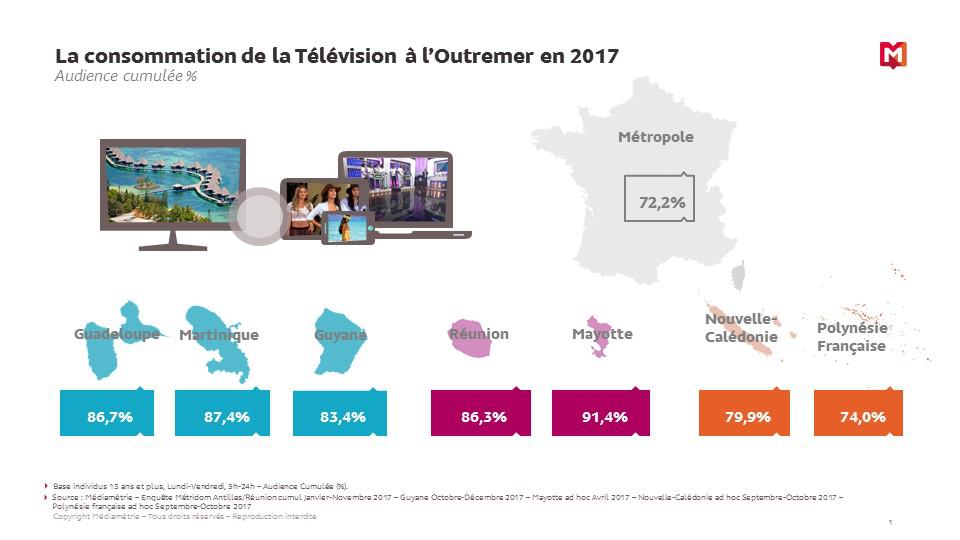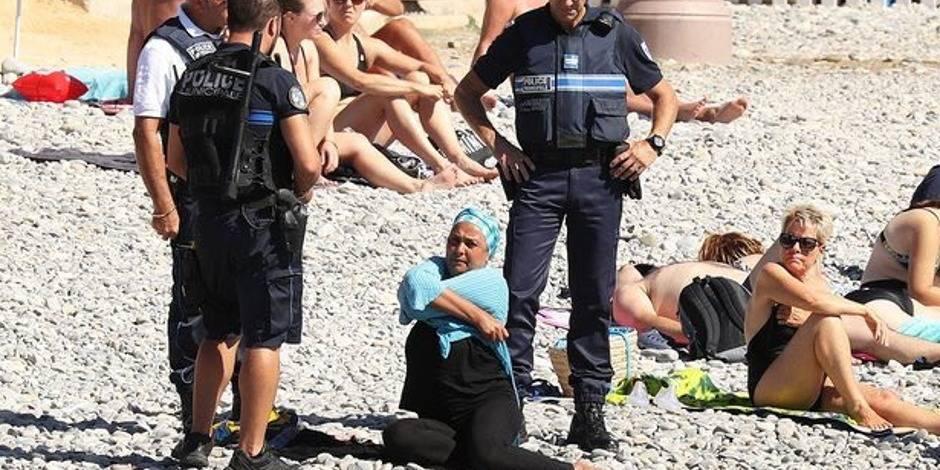Local cultures acclaimed in the Overseas Territories
For fifty years, the surveys of the Ministry of Culture on the cultural practices of the French have been authoritative to document the behavior of our fellow citizens. By launching today a series of new surveys on cultural practices in the Overseas Territories, the Department of Studies, Forecasting, Statistics and Documentation of the Ministry of Culture wants to go further.
Before Mayotte and Reunion at the end of the year, the latter devoted three instructive studies to Martinique, Guadeloupe and Guyana. It shows that the populations of these overseas territories have a strong appetite for music and local cultural practices, and for languages in particular, Creole in Martinique and Guyana, and first and foremost Haitian Creole and Portuguese in Guyana. . Amandine Louguet, in charge of studies in the department of studies, forecasting, statistics and documentation of the Ministry of Culture, co-author with Antonin Creignou and Baptiste Raimbaud, in charge of studies in the Antilles-Guyana department of the 'INSEE, comes back for us on the main results.
The surveys published today on cultural practices in overseas territories are a major first. How is this approach unique?
Absolutely. The survey of cultural practices was born in the 1970s, but until then it had only been carried out in mainland France. For its sixth edition, in 2018, the ministry, in partnership with INSEE, has chosen to develop this system in the five overseas territories, Martinique, Guadeloupe, Guyana, Mayotte and Réunion. We have used the questionnaire developed in mainland France but have added questions and suggested answers so that it is representative of their daily practices. Local practices, and in particular the question of languages, which are very present in overseas territories, have been closely studied.
For Martinique, you highlight the fact that traditions, music and Creole transcend generations. How do you explain it?
This observation is also valid for Guadeloupe. The place of Creole is extremely important, whether in professional life or in private life. Seven out of ten Martiniquans and Guadeloupeans use Creole on a daily basis. Same omnipresence of music and radio. We realize this as soon as we arrive on site: the radio works permanently, it is particularly true in Guadeloupe. Generally speaking, there is a culture of orality which is much stronger in overseas territories than in mainland France. Another strong trend: many Martinicans, Guadeloupeans and Guyanese take part in the carnival, an event during which it is common to play an instrument or to dance, which would also tend to reveal the importance of the amateur practice which is underestimated in the study due to the wording of the questions.
Traditions are also prized by all generations...
In effect. The transmission between generations is extremely strong. Young people are proportionally the most numerous to participate in the carnival, and they are also very likely to speak Creole and use it on a daily basis.
One element, on the other hand, differentiates the generations, it is the relationship to information. Why this discrepancy?
Our survey reveals a constant fact in these three territories: young people get more information on social networks. That said, in general, it is the whole of this population that gets more information on social networks than in mainland France. This is explained on the one hand by the offer available in these territories. The "paper" press, which is much more expensive in the Overseas Territories than in mainland France, is less present in these territories. This is a first brake. On the other hand, illiteracy rates are much higher in overseas territories, particularly with regard to the French language. Also, you may have a newspaper in your hands, if you do not speak French well enough, you will potentially seek information on the internet and on social networks in languages that you speak.
Along with illiteracy, you note a difficulty in accessing books. What is it about?

There is the question of the price of the book and access to equipment. Almost all cities have a library, but it is the offer available in the majority of establishments that sometimes poses a problem. In Guyana, for example, we have a relatively high rate of illiteracy in French, but people are fluent in Portuguese and other languages. However, if they go to libraries and they do not find works in the languages they master, they will not be able to read. In Martinique and Guadeloupe, the question of the language arises a little less, it is rather that of the budget, insufficient, allocated to the acquisition of new books which dominates.
Soon, we will celebrate the forty years of the law on the single price of the book. This single price applies of course in overseas territories, but significant transport costs must be added...
Absolutely, a book that will cost fourteen euros in mainland France, will cost two euros more in Martinique or Guadeloupe. Next to that, the purchasing power is less compared to mainland France. These different criteria are cumulative.
Regarding the press, you mentioned the available offer. Is this criterion, applied to cultural outings, also decisive?
We see two things: when the practices are domestic, whether they depend on television, the Internet, or platforms offering a diversified audiovisual content offer, such as Netflix or Salto, they are almost identical to those observed in mainland France. On the other hand, when they depend on facilities such as libraries, cinemas and theatres, the gap widens with mainland France. There is undoubtedly a problem relating to local equipment, but the question of supply as such is just as important. In Martinique, you have 200 films released every year compared to 700 in mainland France. But are these 200 films the ones that potentially have the best chance of interesting Martiniquans? It's a real question. Films for the general public which are released in France are likely to interest the West Indies of course, but are the films which concern Haiti, Cuba or other islands programmed? And if so, how do we bring them to the populations, how do we offer them to the inhabitants?
The consumption of films appears to be one of the main practices of these populations…
They watch a lot of films and are extremely well equipped in terms of screens: televisions and internet access. In Guyana, they are a little less well equipped but it is also a consequence of the purchasing power which is less. There is a real appetite for films. Through catalogs such as Netflix or Salto, we can also consume films and series that are in a potentially more interesting geographical area. In Guyana in particular, we have a large population of Brazilian origin who consume a lot of Hispanic series and telenovelas. When the person can buy and choose the offer, we have practice rates almost identical to those of mainland France.
In Guyana, linguistic diversity plays a determining role in cultural practices. How do you explain it?
There is a very strong use of Portuguese in practices. The same can be seen for the Dutch spoken in Suriname. Similarly, there is a large Haitian community in Guyana, and Haitian Creole is very well established, whether in cultural practices or in daily life. The Guyanese territory is a great "melting pot" from the point of view of the populations but also from that of cultural practices.
How are these results perceived locally?
During the presentation of the results of the survey to the prefecture of Martinique, we perceived a particular interest around the question of the media. The health situation particularly affects the West Indies, however, the vaccination rate remains low, and false information circulates enormously. On the occasion of this presentation, decision makers and state representatives saw how central social networks are in the way people, young people first, but more broadly the entire population, s informed. Hence the question: how should we inform? How should the information be passed on? Why, alongside French, not also communicate in Creole for example?
Cultural practices in Guadeloupe, Martinique and Guyana by Amandine Louguet, Antonin Creignou, Baptiste Raimbaud, Culture Studies Collection, three 12-page booklets, Department of Studies, Forecasting and Statistics, Ministry of Culture, October 2021








